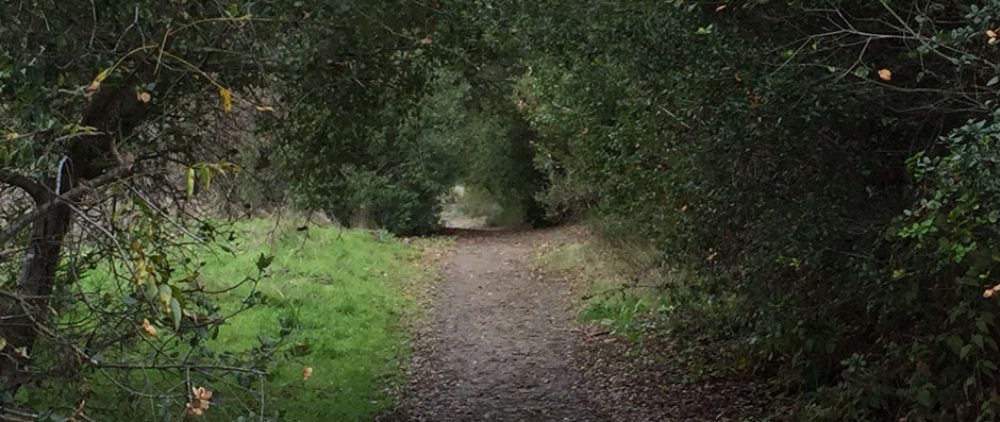
It’s strange to walk in the local park when it’s so empty – just a few other dog walkers who wave from a distance, or runners, or families with kids on bicycles. The silence has an appeal all its own. It’s not really silence, of course. It is bird songs and the sound of a breeze stirring the leaves rather than calls of “Hey batter, batter,” from the softball fields.
For those of blessed to be safe and healthy right now, and with the time and inclination to pause and reflect, the space and silence we have is a gift and a profound opportunity. To reflect deeply at this time of pandemic driven isolation can be a way to reconnect with ourselves, which is, in many ways, a deeply subversive act in a manic culture so bent on distracting us that lately videos with loud and annoying soundtracks are even starting to show up on gas pumps.
In a 1985 essay that I recommend to everyone, Report From El Dorado, journalist Michael Ventura wrote, “To go from a job you don’t like to watching a screen on which others live more intensely than you…is American life, by and large.” In the same essay, Ventura noted that the average American family watched six to eight hours of television a day. He concludes that the “fundamental message of television is: ‘It’s all right,’ and “The culture…is in the infantile position of needing to be assured, every day, all day, that this way of life is good for you.”
Ventura’s essay was written during the “good times,” the Reagan years, one of those boom times for many, when the cracks in the culture were hidden from those who weren’t paying attention. I suspect it’s one of the periods of supposed greatness that inspires nostalgia in MAGA people.
There will be no return.
There never is after this kind of event. A cultural inflection point like this changes everything forever, as did World War I, Pearl Harbor, Vietnam, and 9/11.
Those with a vested interest in the crumbling status quo are in full panic mode, desperate for us “to get back to work,” no longer even pretending it’s good for us. A spike of 2% – 3% in the body count is “acceptable” according to both the Lieutenant Governor of Texas and Dr. Oz.
People who know how to pause and be silent, to disconnect from their screens and mental chatter, will not be so fast to lay down their lives for predatory capitalists.
I’m blessed to have a back porch where I can sit in the shade, and pause, and reflect. There are many ways to still ourselves. One simple method was advocated by James Finley, who teaches Christian contemplative practice. He advocated this reflection on a phrase from Psalm 46:
Be still and know that I am God.
Be still and know.
Be still.
Be.
People who are able to connect with their inner Awareness are the ones we will need to shape a post epidemic future that will be worth living.






